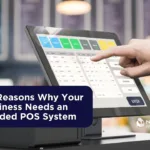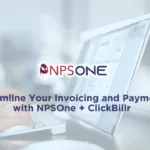Why Is My Business on the MATCH List and How to Find Out?
The MATCH list, also known as the Member Alert, to Control High-Risk Merchants, is a database maintained by Mastercard to identify businesses flagged as high-risk by acquiring banks. If your business is on this list, it can make obtaining merchant accounts or processing payments more challenging. Typically, businesses stay on the MATCH list for five years unless the issues are resolved. Let us delve into why businesses end up on this list, how to find out if you are on it, and what steps you can take.
What Is the MATCH List?
The MATCH list serves as a warning system for acquiring banks and payment processors about merchants who pose a high risk. It is primarily used to reduce fraud, chargebacks, and violations of compliance standards.
How to Find Out If You Are on the MATCH List
If you suspect that your business is on the MATCH list, follow these steps to confirm:
1. Contact Your Payment Processor
Most businesses discover they are on the MATCH list when their merchant accounts are terminated. Ask your payment processor directly if this is the case.
2. Request a MATCH Inquiry
Processors and acquiring banks have access to the MATCH list. Requesting an inquiry can confirm whether you are listed. Contact us on how to do this!
3. Look for Merchant Account Denials
Frequent denials when applying for a new merchant account can be a sign that your business is on the MATCH list.
sponsored by
Common Reasons for Being on the MATCH List
Several violations or issues can land your business on the MATCH list. Below are the most common causes:
1. Violation of Terms of Service
Failing to adhere to the agreed-upon terms with your payment processor can result in a MATCH listing. This could include policy breaches or non-compliance with industry standards.
Payfac companies like Stripe, Square, PayPal and their partners they change their terms of service often and they have Restricted and Prohibited lists and you could be processing for years and suddenly, they have updated the list to include your business type. You might fly under the radar until they find your business and shut you down.
Make sure that you have all required policies on your website:
Privacy Policy, Terms and Conditions, Return, Refund, Cancellation Policies, Name, Address, Phone number and email address as well as a contact form. If you have recurring transactions, you are required to have a click to cancel button and make it as easy as it was to sign up to cancel. ** recent California Law and FTC are enforcing this.
2. Excessive Chargebacks
A high chargeback ratio is one of the most frequent reasons businesses are flagged. When customers dispute transactions excessively, banks view it as risky behavior.
Chargebacks need to be under .5%, some companies will allow a higher percentage but that depends on business type and business model.
3. Fraudulent Activity
If your business is suspected of engaging in fraudulent transactions, it may lead to immediate placement on the MATCH list.
Keeping your account secure is important and making sure that no one has access to your credentials.
4. Anti-Money Laundering (AML) Violations
Compliance with AML regulations is critical. Any activity that facilitates money laundering will attract scrutiny and potential MATCH listing.
5. Verify Deposits and Settlement Timing
Unresolved debts, unpaid fees, or unaddressed chargebacks can trigger your inclusion on the list.
6. Selling Unregistered Products or Services
If you start selling items not listed during your initial merchant account setup, your processor may consider this a breach of agreement.
Every website URL must be on file with the processor, you can not get a merchant account for one website and plug the gateway into several websites, this is a violation.
If you change or add products to your site that were not originally approved, you need to get those products approved by the processor.
7. Operating Multiple Websites Without Registration
All websites connected to your merchant account must be declared. Operating additional sites without notifying your processor can result in penalties.
8. Non-Compliant Advertising Practices
Ads violating industry standards or deceptive advertising practices can also lead to a MATCH listing.
9. High Risk Merchants that require registration:
If you operate a business that requires registration you need to make sure you are registered.
Drugs, Prescriptions, Telemedicine
Adult websites, which have pre-corded or live content.
Content Creation websites need to meet certain standards * contact us for more info.
Direct Marketing
Cigars, Vape – online.
Gaming, gambling games of chance
To find out more about these programs you can contact us for more information and a free consultation.
How Long Will I Be on the MATCH List?
If your business is added to the MATCH list, it typically remains there for five years. During this period, acquiring banks and processors may refuse to collaborate with you. However, there is hope if you address the underlying issues:
- Settle debts or disputes with your processor.
- Implement stricter fraud controls and demonstrate compliance.
- Work with high-risk processors specializing in businesses on the MATCH list.
Steps to Get Off the MATCH List
1. Identify the Cause
Review any notifications or reports from your processor to pinpoint why your business was listed..
2. Resolve the Issues
Take corrective measures, whether paying off debts, reducing chargebacks, or complying with regulations.
3. Request Re-Evaluation
Once you have addressed the problems, ask the acquiring bank to remove your business from the list.
4. Seek Legal Assistance
If you believe you were added unfairly, consult a legal expert to contest your listing.
Frequently Asked Questions
1. Can I still accept payments if I am on the MATCH list?
Yes, but you will need to work with high-risk payment processors. They may charge higher fees and impose stricter terms.
2. Is it possible to avoid the MATCH list altogether?
Yes, by following best practices: avoid chargebacks, ensure compliance, and maintain transparency with your processor.
3. Will being on the MATCH list affect my credit score?
No, the MATCH list is separate from credit bureaus and does not impact personal or business credit.
4. Can I dispute my inclusion on the MATCH list?
Yes, you can work with your processor or seek legal advice to challenge your placement if you believe it, was an error.
5. How can I reduce chargebacks?
Implement secure payment gateways, provide excellent customer service, and clearly communicate return policies to minimize disputes. Have phone number that is answered and have a form on your site and email and contact customers in 24 hours or less to resolve issues.
Being on the MATCH list is a significant hurdle but not the end of your business journey. By identifying the cause, addressing the issues, and working with high-risk processors, you can regain control of your merchant services. Remaining proactive, compliant, and transparent is key to staying off the list in the future.
The one thing we specialize in at Nationwide Payment Systems is helping merchants avoid getting on the match list and keeping chargebacks under control, we review your site and your business practices to ensure that you stay compliant with all the rules and regulations.
CLICK HERE TO FIND MORE ABOUT OUR PROGRAMS

Expert in Payment Solutions
Allen Kopelman
(866)677-2265
allen@npsbank.com
Allen is the CEO and founder of Nationwide Payments Systems, where he specializes in providing customized payment solutions. He also hosts the B2B Vault podcast, which offers insights into the latest developments and trends in the payment industry.





